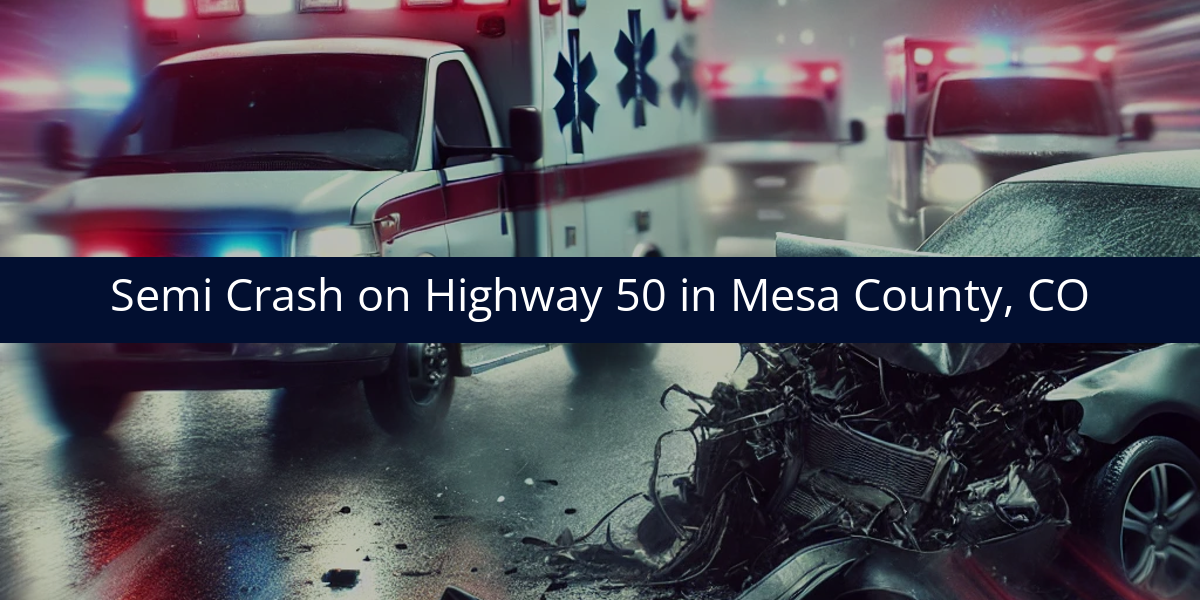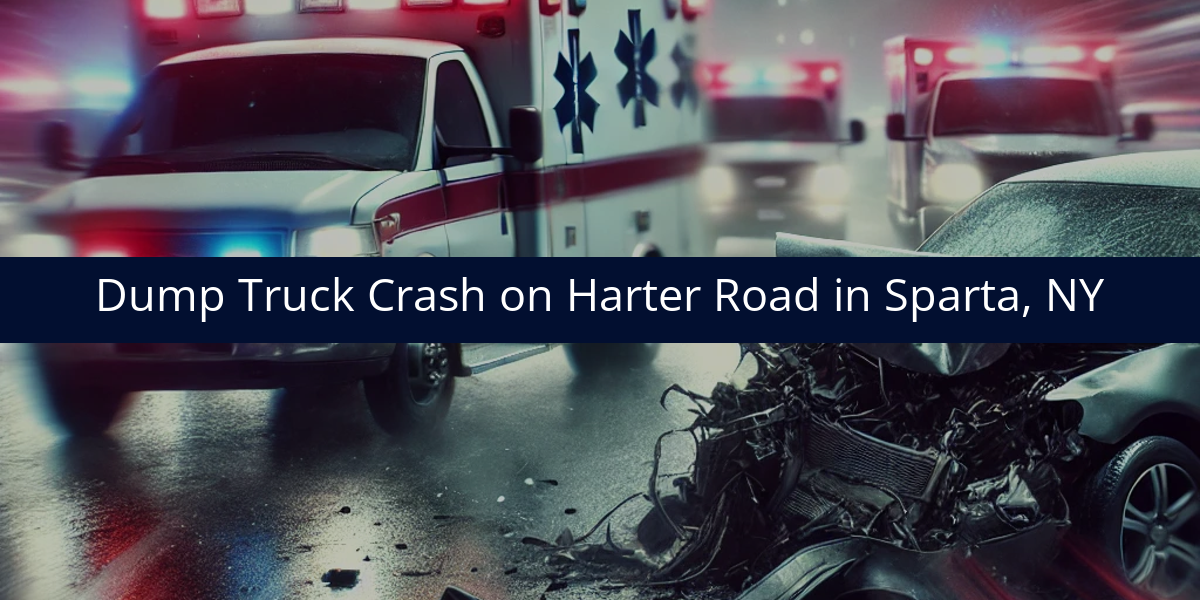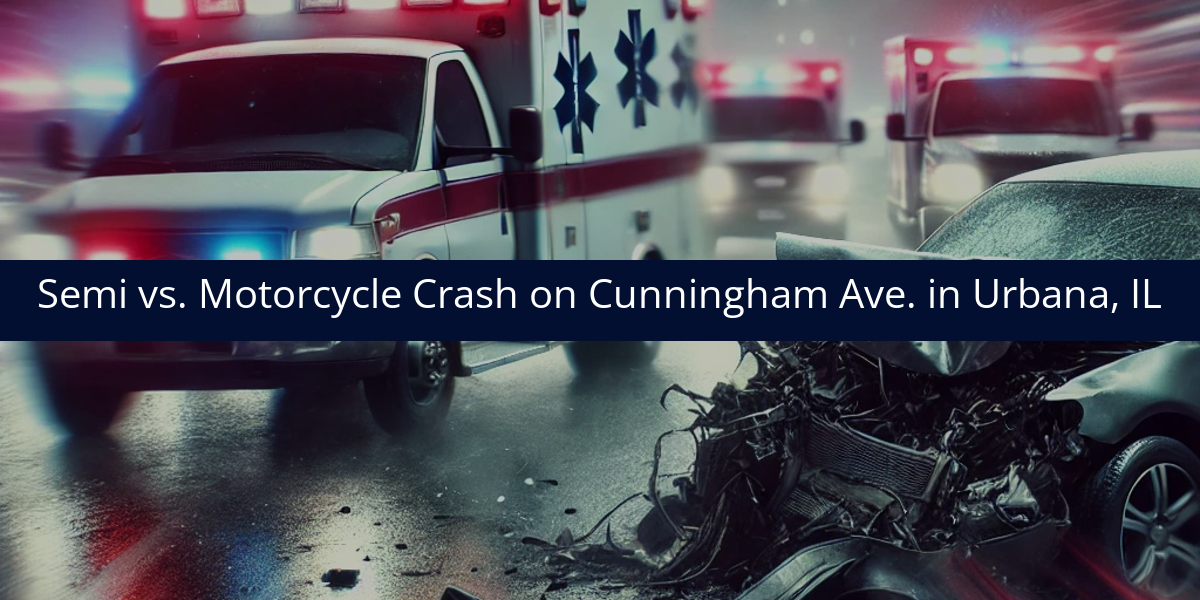Most people believe that police investigators make the final determination of who's to blame for a truck accident, but that's not true. In fact, those reports sometimes contain mistakes—misunderstood or missed details, opinions instead of facts, wrong conclusions, etc.—and those inaccuracies cause trouble for people who need to prove their story. In a situation where so much depends on accuracy, what do you do if a police report is wrong about your truck accident?
Answer: If you believe that the police report for your crash is incorrect, it's best to involve someone like an attorney who can conduct an independent investigation.
You may not be shocked to see an attorney recommend "having an attorney," but it's truthfully most people's best option after a commercial wreck. Independent investigations uncover crucial evidence often missed during a police once-over at the scene, but digging deep enough to find those details takes resources and expertise that neither law enforcement nor crash victims tend to have. Let's further unpack what I mean.
Police Reports Are Often Incomplete
While there are some clear-cut crashes where a person could determine what happened and why just by looking at the accident scene, the truth is that most serious commercial truck accidents require evidence that isn't even available at the scene to determine who is to blame.
For instance, if, while under the influence, a truck driver crashes into a line of stopped cars, it might be tempting to conclude that the truck driver is so clearly to blame that it's open and shut. However, there are countless instances where trucking companies hire drivers with a history of drug use, or look the other way regarding substance abuse problems. In those cases, the intoxicated trucker is certainly still to blame, but there's also a healthy amount of fault to direct toward the trucking company who carelessly put him in a truck to operate in their name.
In those instances, how can the police possibly determine who caused a crash with just what they learn at the scene? Given the complexities of the trucking industry, it's rather common for crash investigations to extend well beyond the accident scene. Who rarely investigates beyond the crash scene? The police.
This is why many police commercial truck accident investigations are incomplete.
Even Interpreting the Evidence at the Scene Is Difficult
When a traffic accident happens, police are usually among the first to arrive. They secure the area, provide emergency assistance, and document what took place. The reports they generate from surveying the scene are important, but it’s worth remembering that the reporting officer is not an engineer or a forensic accident reconstructionist. Their focus is generally on immediate facts and whether anyone broke traffic laws—not the deeper mechanics of why the collision occurred.
In truck accidents especially, many factors (driver error, mechanical failure, unbalanced cargo, unsafe conditions, etc.) can contribute to a crash. Some might be obvious right away due to physical signs, but those might also be misinterpreted. An officer might see tire skid marks and assume a driver was speeding, when in reality the vehicle’s brakes were defective. Other evidence may need specialized training to uncover, like obtaining and interpreting the electronic "black box" data from inside an 18-wheeler. Finally, officers might be inclined to accept someone's word at face value instead of confirming it with objective evidence. In short, while the officer is doing their best in the moment, they may not have the tools or expertise to assign blame accurately.
Because of this, relying solely on a police report can be risky if you’ve been involved in a truck accident. They are rarely considered the final word on the matter, and insurers have little trouble poking holes in them. A more thorough investigation—often involving accident reconstruction experts, depositions, and subpoenas—may reveal a much different picture of who was truly at fault.
Do Police Ever Change Their Reports?
It's possible but not easy to get an officer to change or amend a police report after a truck accident. Most will correct obvious factual mistakes—vehicle make and models, time and location, name spellings, and the like—if you can show proof of the error. These corrections are usually pretty straightforward as long as you have supporting evidence.
When it comes to disputed details like who caused the accident, though, officers are less likely to change their findings. From their perspective, the report reflects their professional judgment at the scene, based on the evidence and statements they collected. Asking them to change anything is like asking them to admit they were wrong, and they're unlikely to do that without strong evidence of the mistake.
In serious truck accidents, that might come from sources the officer didn’t have access to at the time, like dashcam video, data from the truck’s electronics, or expert accident reconstruction reports. Even then, the officer may just attach a supplemental report instead of rewriting the original.
Example: A police reports says Maria was speeding and she caused her crash with an 18-wheeler. The officer based this conclusion on tire skid marks and the truck driver’s statement, as Maria was incapacitated and couldn't tell her side of the story.
A few weeks later, Maria’s attorney obtained data from the truck’s electronic logging device, which showed the trucker had been driving for 15 straight hours, which is illegal and means he was probably fatigued. Dashcam footage from a nearby vehicle also showed the truck drifting into Maria’s lane. With this evidence, the attorney requested a supplemental report from the police department. The officer still did not rewrite the original report, but they added more notes about the new findings, which helped Maria's attorney give the defense and the court a clearer picture of what happened.
Because of the difficulties in getting police to change their minds and the potential confusion between original and supplemental reports, many accident victims rely on attorneys to untangle the whole mess.
How Can Attorneys Set the Record Straight?
Attorneys can play a key role in correcting or balancing out a police report if their client says it has errors. If police are so inflexible, though, how do they do that?
First, experienced attorneys know how to track down and preserve evidence that goes beyond what the responding officer had the time, tools, or training to find. That might include pulling data from the truck’s ECM (electronic control module), reviewing logbooks that show hours-of-service violations, securing surveillance or dashcam footage, and other steps that police don't always get to. By collecting evidence that the officer may not have had access to, attorneys can build a stronger, fact-based counter to the report’s conclusions.
Second, attorneys understand the process of requesting corrections or supplements to a police report. For example, they can submit the documented proof we mentioned above and cite it as ground for amendments or at least a supplemental report. Officers aren't required to change their findings about fault, but it's still useful for attorneys to get factual inaccuracies like vehicle descriptions or witness statements corrected in the official record.
Finally, even if the police report itself remains unchanged, attorneys know how to put its information in perspective. Just like the defense, they too can challenge the officer’s conclusions by presenting testimony from expert professionals, and they can introduce new evidence that undercuts the original findings. In this way, attorneys don’t just push for changes in the report—they actively reframe the narrative so that one document doesn’t unfairly dictate the outcome of a claim.
All those are helpful steps experienced attorneys take during many truck accident cases. Even if there's nothing to correct in the report, inevitably there's more to the story than what officers pick up in a basic investigation. Their knowledge of what to look for and how it can strengthen a case are just two of many reasons a lawyer can be a vital ally.
Grossman Law Offices Can Help
Police reports carry some weight in a personal injury or wrongful death case, but they aren’t infallible. Officers do their best to capture the facts at the scene, but they may overlook critical details or misinterpret evidence. That means a report could point fingers in the wrong direction, which can be a huge problem for an accident victim's claim. Strong evidence, expert analysis, and the help of a knowledgeable lawyer can all shift the outcome. At the end of the day, correcting the police report is less important that assigning blame in litigation. Insurance companies rarely pay compensation based strictly on a police report. Instead the victim must marshal evidence to prevail in court.
The Texas truck accident lawyers at Grossman Law Offices have decades of experience helping victims of all kinds of commercial accidents, from 18-wheelers to delivery trucks to construction equipment. Our attorneys know what to look for, who to hire to help them find it, and what to do with the evidence they uncover—including setting the record straight with the authorities. If you were hurt or lost a loved one in a commercial vehicle accident, contact Grossman Law today for a free and confidential consultation. Our attorneys are available 24/7 to speak with you.













